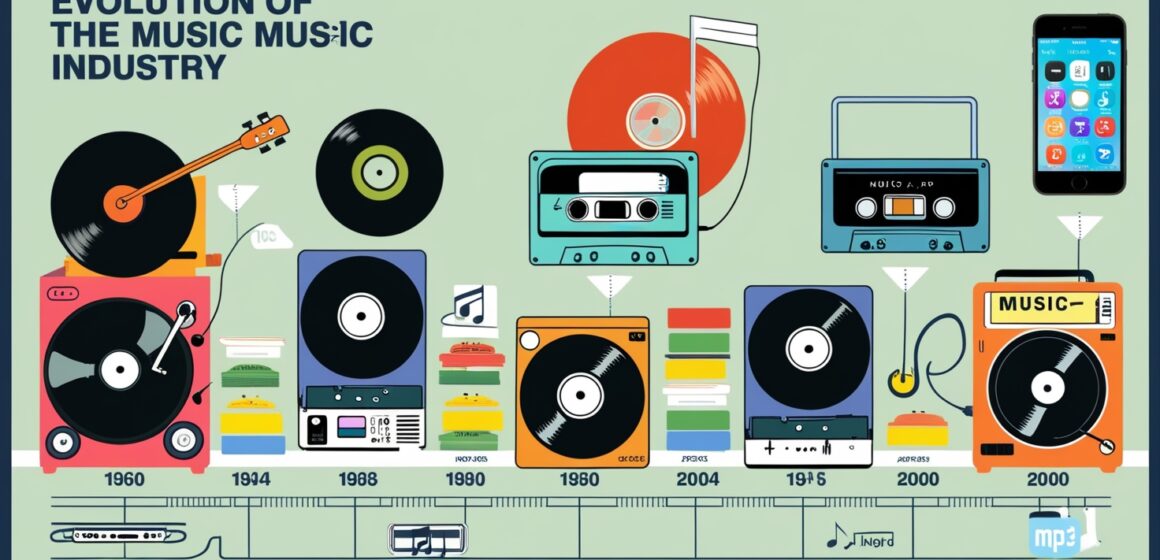The music industry has undergone a seismic shift in the past two decades, moving from physical album sales to digital downloads and now to music streaming platforms. Services like Spotify, Apple Music, Amazon Music, and YouTube Music have not only redefined how we consume music but also how artists create, distribute, and profit from their work. This transformation has brought new opportunities and challenges for the industry as a whole.
The Rise of Music Streaming Platforms
Music streaming platforms have become the dominant method of music consumption worldwide. Unlike traditional sales models, these platforms operate on a subscription or ad-supported model, offering users access to millions of songs on demand. Here are some key statistics to highlight this trend:
- Global Reach: Over 600 million people subscribed to music streaming services in 2023.
- Revenue Contribution: Streaming accounted for over 65% of global music industry revenue in 2022.
- Accessibility: Listeners can access vast libraries of music anytime, anywhere, on a variety of devices.
This widespread adoption has fundamentally changed the music landscape.
How Streaming Platforms Are Shaping the Industry
1. Empowering Independent Artists
- Direct Distribution: Platforms like Spotify and SoundCloud allow independent artists to upload their music directly without needing a record label.
- Wider Reach: With global access, artists can build audiences in different parts of the world.
- Data Insights: Analytics tools help artists understand listener demographics, preferences, and geographic trends, enabling targeted marketing.
2. Changing Revenue Models
- Subscription Revenue: Artists earn through royalties paid per stream, though this model has sparked debates over fair compensation.
- Decline in Physical Sales: CDs and vinyl are now niche products, with streaming taking the lion’s share of revenues.
- Live Performance Boost: Streaming platforms often act as a discovery tool, encouraging fans to attend live concerts, a key revenue source for artists.
3. Algorithm-Driven Discoverability
- Personalized Recommendations: Platforms use algorithms to suggest songs, creating opportunities for lesser-known artists to gain exposure.
- Curated Playlists: Popular playlists can catapult songs to viral status, driving millions of streams.
- Impact of Virality: Social media and streaming synergy (e.g., TikTok challenges) have helped unknown tracks gain mainstream popularity.
4. Evolving Listening Habits
- Playlist Culture: Instead of listening to full albums, many users prefer playlists tailored to moods, activities, or genres.
- Global Influence: Access to global catalogs has popularized regional genres like K-pop, reggaeton, and Afrobeat on an international scale.
- On-the-Go Listening: Mobile access has made music an integral part of daily life, from workouts to commutes.
5. Challenges for Artists and Platforms
- Royalty Disputes: Many artists argue that per-stream payouts are insufficient, leading to ongoing debates about equitable compensation.
- Market Saturation: With millions of songs uploaded daily, standing out in a crowded marketplace is increasingly difficult.
- Algorithmic Bias: Critics point out that algorithms may favor established artists or commercial genres over niche or experimental music.
The Positive Impact on Consumers
For listeners, music streaming platforms are a game-changer:
- Affordability: A single subscription provides unlimited access to vast music libraries.
- Convenience: On-demand streaming means no more downloading or managing files.
- Discovery: Users can explore genres, artists, and curated playlists easily, expanding their musical tastes.
The Future of Music Streaming
As technology evolves, streaming platforms are likely to integrate with emerging trends such as:
- AI-Generated Music: Personalized compositions created by AI for individual users.
- Immersive Audio: Advances in spatial audio promise to enhance the listening experience.
- Blockchain and NFTs: These technologies could enable fairer royalty distribution and new ways for fans to own music.
Conclusion
Music streaming platforms have revolutionized the music industry, making it more accessible and global than ever before. While they present challenges for artists in terms of fair compensation and visibility, the benefits of global reach, data insights, and diverse revenue opportunities cannot be understated. As the industry continues to adapt, the relationship between artists, platforms, and listeners will shape the future of music in exciting and unpredictable ways.




Leave a Reply